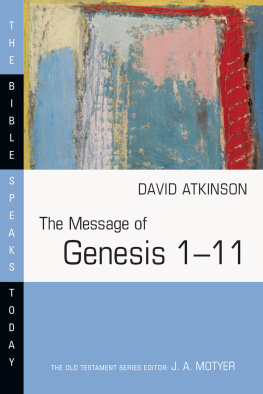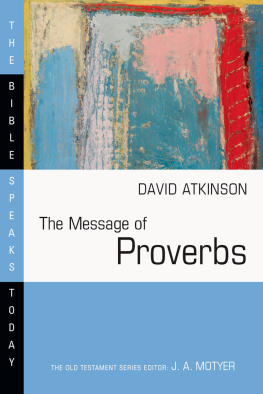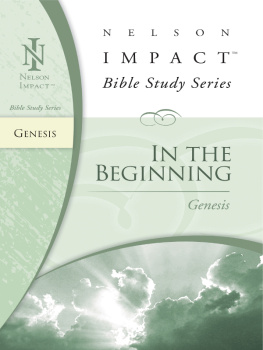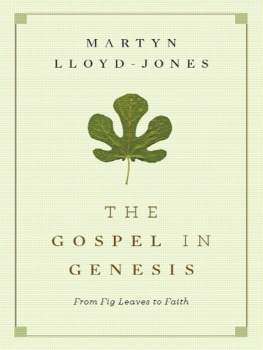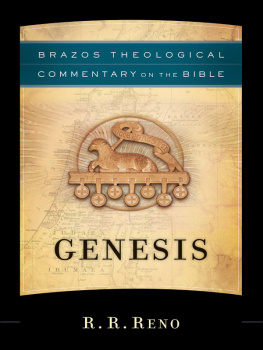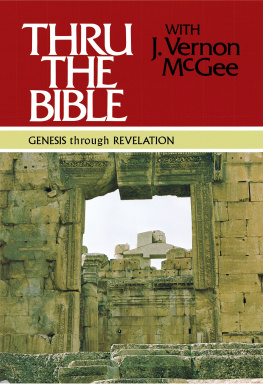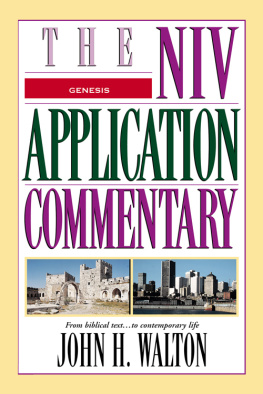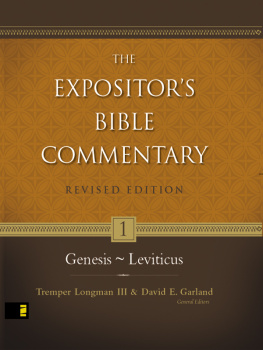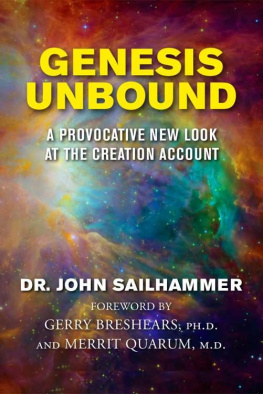BST The Bible Speaks Today
GENERAL PREFACE
THE BIBLE SPEAKS TODAY describes three series of expositions, based on the books of the Old and New Testaments, and on Bible themes that run through the whole of Scripture. Each series is characterized by a threefold ideal:
These books are, therefore, not commentaries, for the commentary seeks rather to elucidate the text than to apply it, and tends to be a work rather of reference than of literature. Nor, on the other hand, do they contain the kinds of sermons that attempt to be contemporary and readable without taking Scripture seriously enough. The contributors to The Bible Speaks Today series are all united in their convictions that God still speaks through what he has spoken, and that nothing is more necessary for the life, health and growth of Christians than that they should hear what the Spirit is saying to them through his ancient yet ever modern Word.
ALEC MOTYER
JOHN STOTT
DEREK TIDBALL
Series editors
To Adle, my Mother
and
to the memory of John, my Father
Authors preface
Throughout all my work on this study I have been torn between a mixture of deep apprehension on the one hand and an overwhelming sense of wonder on the other. The apprehension has come from pondering what on earth there is left to say: Genesis 1 11 really says it so much better than most of its commentators in any case! To try to say anything about such great themes as creation, evil, death, grace, judgment, hope indeed, life, the universe and everything within the confines of a book of this length is that not to play the fool?
Yet these chapters of Genesis evoke wonder: wonder at the majesty of God in his creative power, loving mercy, terrible judgment and life-giving hope. And I have found that sense of wonder deepened as I have worked on this book. Genesis 1 11 is really an overture to the rest of the Bible, and I pray that in playing it over again, in this form, something of the majesty and love of the God who makes himself known in the Christ of the whole Bible will be heard.
Some of this material found its way into some weekly expository Bible readings I was invited to give at Wycliffe Hall. Some of it was used again as the basis of some meditations in a spirituality class at Mansfield College, Oxford. I have profited much from the reactions of those who joined in both groups, and from the wise comments on a first draft from colleagues and from my former teacher, Alec Motyer. The Annual Retreat of the Society of Ordained Scientists which as its name implies is a group of practising scientists who are in addition ordained ministers in the church also provided me with fruitful conversations.
I should give a word about my approach. These chapters, as is well known, are the subject of much scholarly debate concerning their origins and authorship. The belief for a long time that they came from the pen of Moses was, to a large extent, displaced last century in the minds of many scholars. They came to the view that there are several strands of literature, from different sources and different times, now edited together in the text which we have in our Bibles. In the last twenty years or so considerable work has been done on the text and it is fair to say that there is still much that is unclear. Even if it is agreed that Genesis uses many sources, it is hard to be clear where the boundaries are. Furthermore, there has been a renewed emphasis on approaching the text in the edition in which we now have it in our Bibles, as a literary whole. Whatever views some of us have about the author or authors and editors, the fact remains that it is this text in its canonical form which Christian people have from the beginning received as the opening chapters of their Bibles. It is this text as a whole which the writers of the New Testament had before them. It is this text through which the divine Word comes to us.
While I have therefore derived much help from commentaries which reflect the whole spectrum of scholarly views about Genesis (and also from the magnificent series of sermons by Helmut Thielicke, How the World Began), I have approached the text, as it were, through the eyes of its final editor whoever that may have been, and whenever his work was done.
My father, through his life, his love and his preaching, helped me understand our life of faith. It is to his memory, and to my mother, that I am pleased to dedicate this book.
DAVID ATKINSON
Bibliography
Augustine, Confessions, especially Books XI XIII.
K. Barth, Church Dogmatics (Eng. tr., T. & T. Clark, 1935 ).
R. J. Bauckham, First Steps to a Theology of Nature, Evangelical Quarterly, vol. 58/3, 1986, pp. 229ff.
R. J. Bauckham, The Genesis Flood and the Nuclear Holocaust, Churchman, 1985, no. 2, pp. 146 ff.
H. Blocher, In the Beginning (IVP, 1984).
D. Bonhoeffer, Creation and Fall (SCM, 1959).
M. Buber, I and Thou (1937; tr. by W. Kaufmann, T. & T. Clark, 1970).
J. Calvin, A Commentary on Genesis (Banner of Truth edition, 1965).
U. Cassuto, A Commentary on the Book of Genesis. Part 1: Adam to Noah (Eng. tr., Magnes Press, 1961).
D. Clines, The Significance of the Sons of God episode (Genesis 6.1-4) in the context of the Primeval History (Genesis 1 11), Journal for the Study of the Old Testament, 1979, pp. 33ff.
D. Clines, Theme in Genesis 1 11, Catholic Biblical Quarterly, vol. 38, 1976, pp. 483ff.
D. Clines, The Theology of the Flood Narrative, Faith and Thought, vol. 100, no. 2, 1972-73, pp. 128f.
J. Hick, Evil and the God of Love (Macmillan, 1966).
C. F. Keil and F. Delitzsch,

